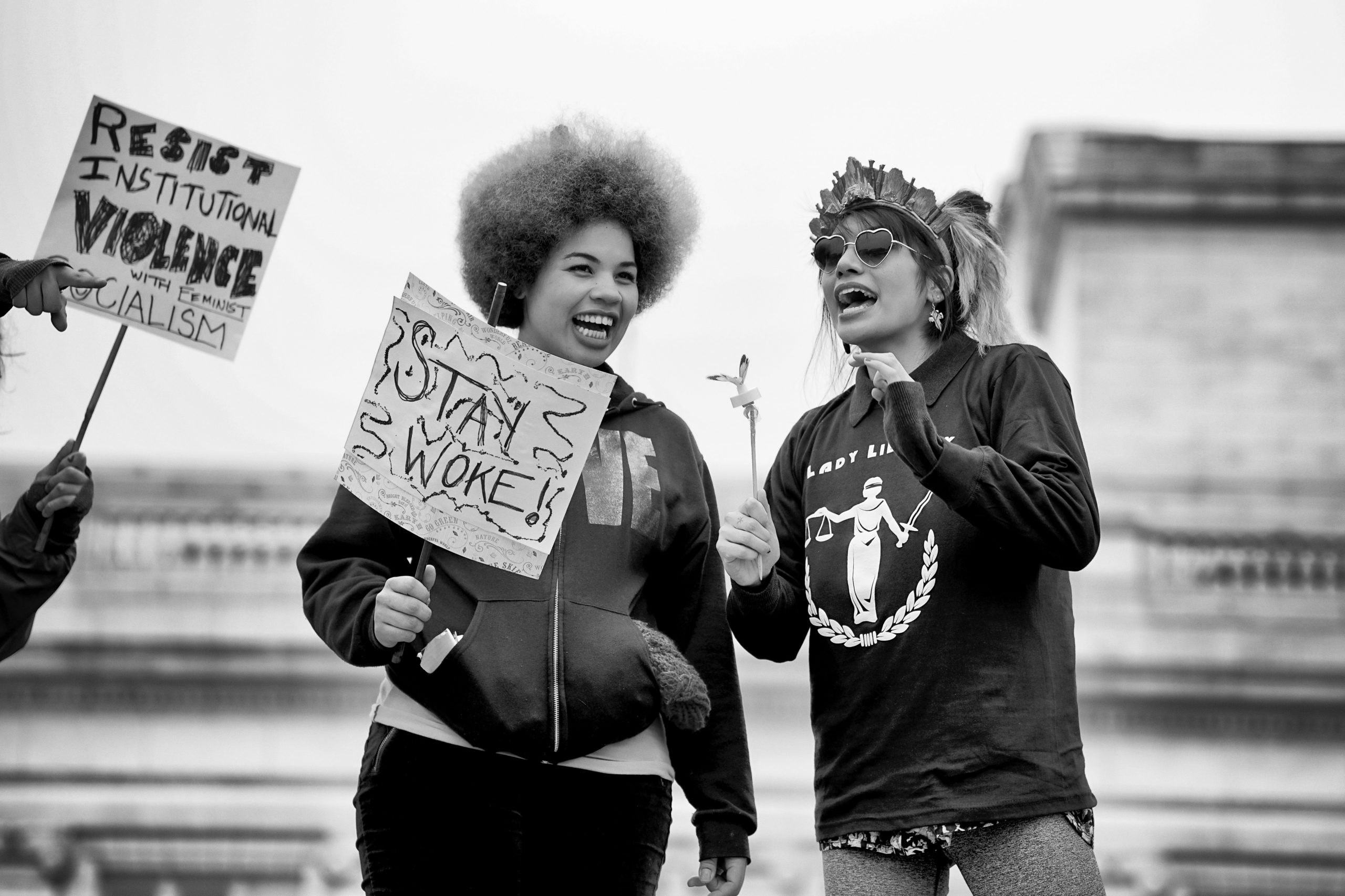The word “woke” has become the centerpiece for culture wars across America. For conservative politicians and leaders, woke has become an ideology, which to them represents discrimination targeting white, cisgender, heterosexual people. Florida has been deemed “where woke goes to die” by Gov. Ron DeSantis, and over the past year has faced bills like House Bill 7 or the “Stop WOKE Act” and Senate Bill 952, or the “Reverse WOKE Act.” As the mythos of “woke” grows in the public image, it’s important to remember that “woke” originally served as a warning call for marginalized groups to “wake up” and stay aware of their oppression.
One of the earliest recorded uses of the phrase “wake up” being used as a call to action was from Jamaican social activist and philosopher Marcus Garvey, who cried “Wake up, Ethiopia! Wake up, Africa!” in a 1923 collection of aphorisms. It served as a call to global Black citizens to stay aware of social and political injustice.
In 1938, Blues musician Huddie Ledbetter, a.k.a. Lead Belly, released the song “Scottsboro Boys” which includes “stay woke” as a part of a spoken word section. The song describes and brings attention to the 1931 Saga of the Scottsboro Boys event in Scottsboro, Arkansas, where nine Black teenagers were accused of raping two white women. At the end of the archival recording of the song, Lead Belly explains that, “So I advise everybody, be a little careful when they go along through there—best stay woke, keep their eyes open.”
From there, “stay woke” became synonymous with staying aware of police violence and discrimination against Black people. However, the word didn’t enter the common lexicon until the 2010s.
Visiting Assistant Professor of English Debarati Biswas has focused much of her research on African American literature, and explained that woke “has been co-opted and hollowed out of its initial meaning,” and that the word now means the complete opposite of its initial connotation.
The protests following the fatal shooting of Michael Brown by the Ferguson (MO) Police Department incited a more common usage of “woke,” with #staywoke rising in trends on social media and becoming a common phrase for social activists of all races, attempting to show solidarity with the Black Lives Matter (BLM) movement.
Biswas explained that after “woke” entered the common lexicon, it very quickly became co-opted and watered down, even going as far as Hulu cashing in on the word’s popularity by creating a show of the same name.
Biswas also emphasized that it is important to remember that woke “encompasses intersectional identities, black, queer, black women, black trans and so on and so forth.”
But the word has moved past the calling card for awareness— now being “anti-woke” is critical for the conservative ideology, and “woke” no longer has the same context.
For the right, “when you are ‘woke’, you are actually discriminating against conservatives, but also white people,” Biswas explained. “Not only just any white person, but white people who are also very heteronormative. Or rather, who are cis, who are straight, who are kind of rich and who are kind of very much holding power.”
“But that’s not what it is at all,” Biswas said. “So they have taken the word, which originally meant to signify something very real, and that is discrimination… discrimination baked into every aspect of our systems, whether it is schooling, whether it’s criminal justice, whether it’s housing, whether it is any of these structures that we need.”
Biswas explained that the word “woke” has been completely hollowed out of its original meaning, and that something which originally served as a way of recognizing oppression has now been turned into a symbol of discrimination for the right wing.
“Inequality is really good for building wealth, for accumulation of capital,” Biswas said when asked about the reason “woke” would be chosen for conservative politicians to co-opt. “Now, how do you keep inequality alive and reproduce inequality? You have to base it on certain social divisions. By maligning ‘woke,’ status quo remains alive and the people in power can remain, kind of asleep at the wheel. And they won’t want us to wake them up.”

